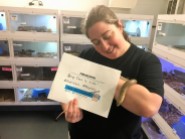By Newport Aquarium Biologist, Erin Muldoon
Every year, there is a week to recognize the hard work of zoo and aquarium professionals, National Zoo Keeper Week. Our Animal Care Team wants to take you along with them as they show you how they live out this year’s theme: Zookeeping takes improvisation, adaptability, and persistence! #NZKW2021 #ItTakesAZoo #KeepCalmZooKeepOn
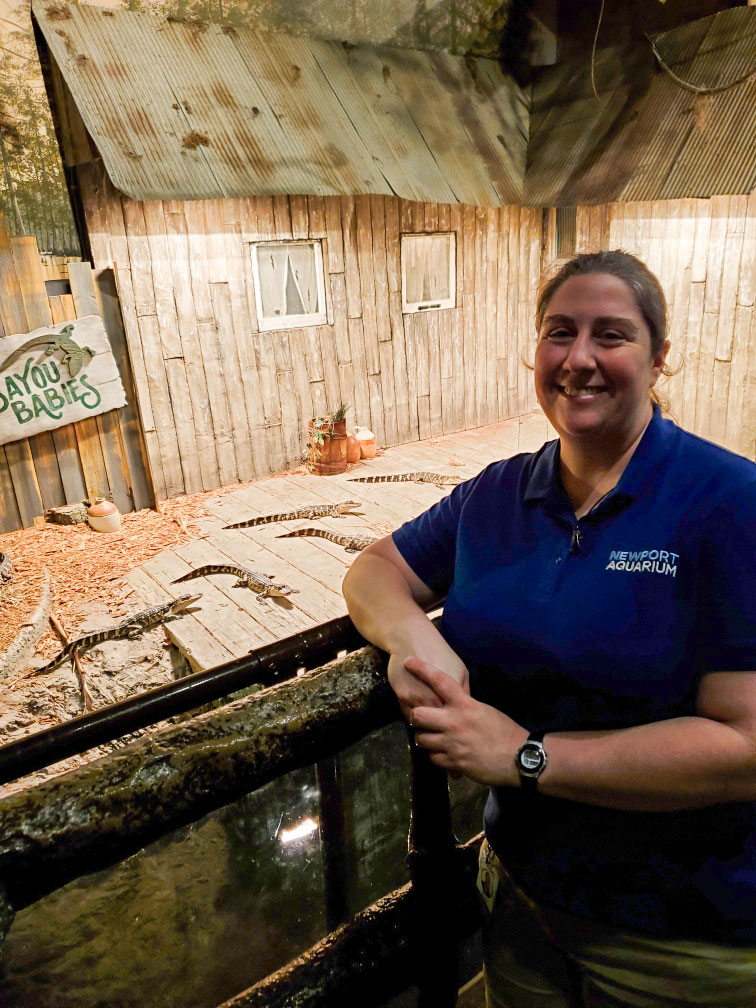
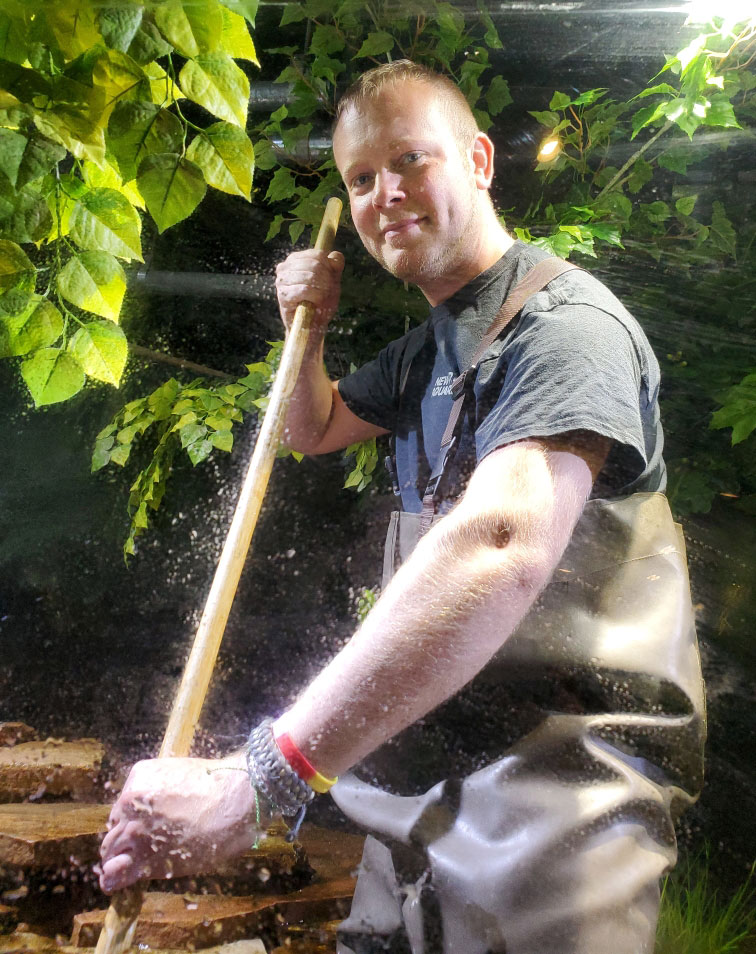
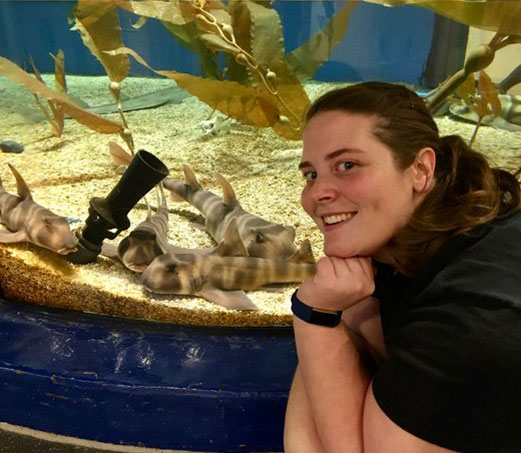
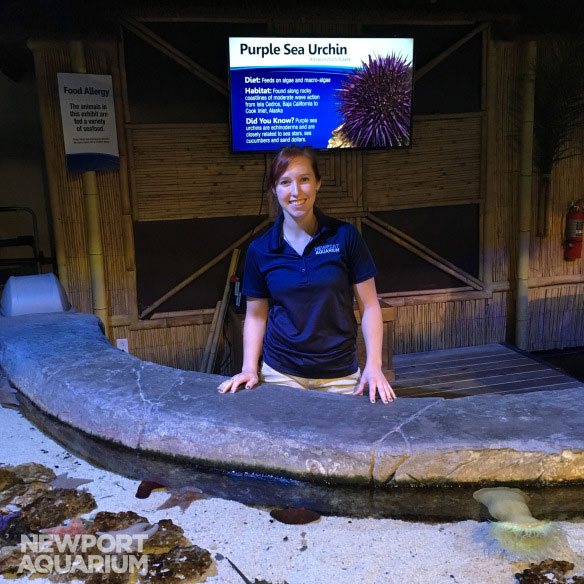
No matter who you are, we all felt the challenges and changes that Covid brought to our world. But, animals don’t know or care about pandemics, so our Animal Care Team had to keep going no matter what. Biologist Rob said, “I’ve adapted to these turbulent times by continuing to push through with projects and tank renovations to benefit our animals and to give our guests the best experience possible”. Biologist Brittney added, “As a team, we had to improvise and adapt a lot during this pandemic in the way we had to care for our animals, but we’ve persisted through it all.” And Biologist Margaret said, “Even after we reopened the aquarium, our touch pool in Shore Gallery was closed for a little while. I was able to use that time to improve on exhibit design and acclimate new animals to the tank so they would have time to be comfortable and ready to go now that guests are able to interact with them again.”
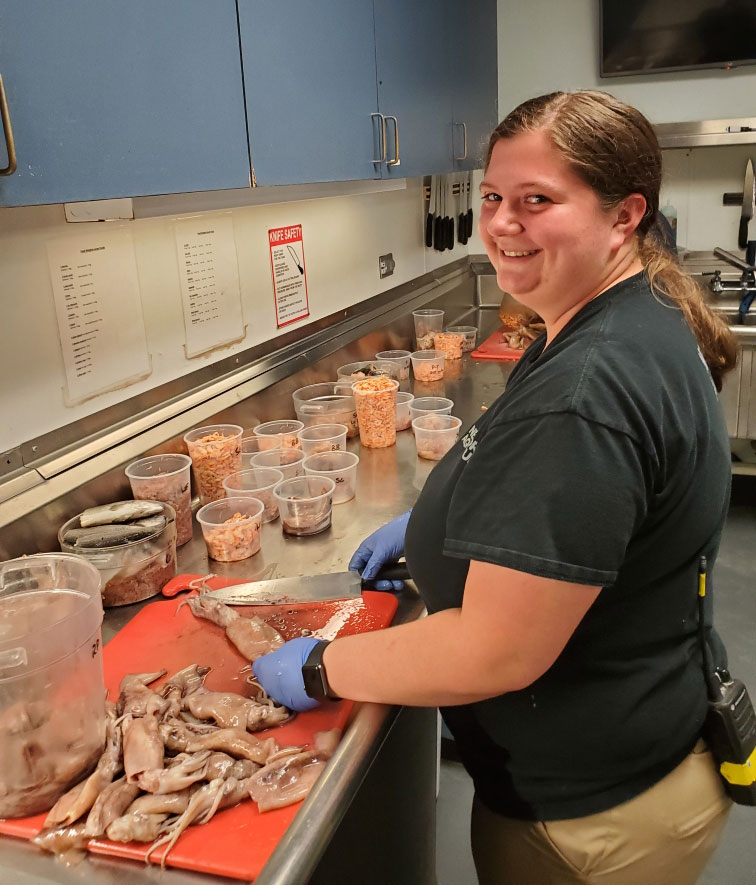
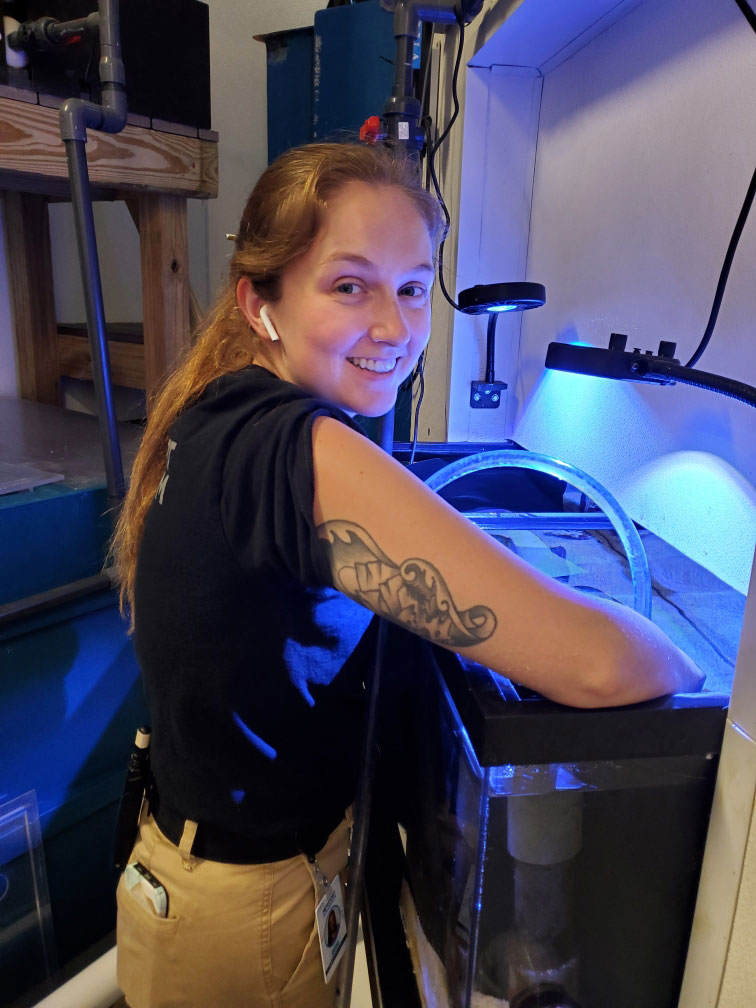
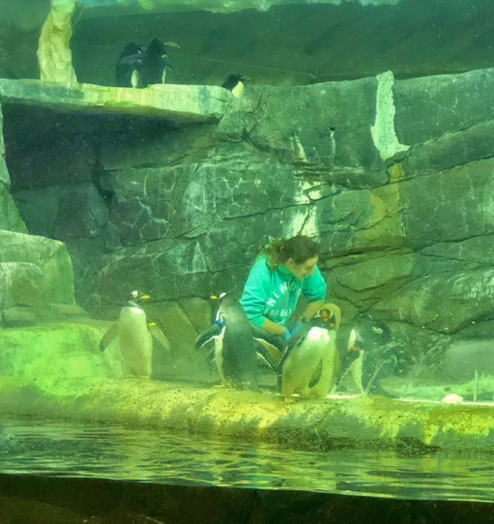
This last year saw a lot of new situations. Our newest Biologists not only had to face the challenges and “new normals” of the world, but had to learn their new roles in our Animal Care Department. Biologists Ali, Katie, and Jaime have not only adapted, they are thriving, and they help our animals live the best lives possible! In addition to some of their basic jobs, Biologists Ali and Katie have been given the task as our kitchen crew and work to prepare the food for every animal at the Aquarium. And Biologist Jaime has been tasked with the care of animals in our new exhibit Shipwreck: Realm of the Eels and has even begun working with the training of the eels.
Another newer face to our team is our Animal Care Coordinator, Sarah. She says, “I think the theme of Improvisation, Adaptability, and Persistence is important to the zookeeping field even in the best of times and this last year has made us all hone those skills in ways we probably never thought we’d have to. For me, it was being thrown into new, unexpected situations and learning on the fly and being able to keep calm and take everything one day at a time. It’s been a rough year but it’s certainly made me better at my job and it’s made us a stronger team.”
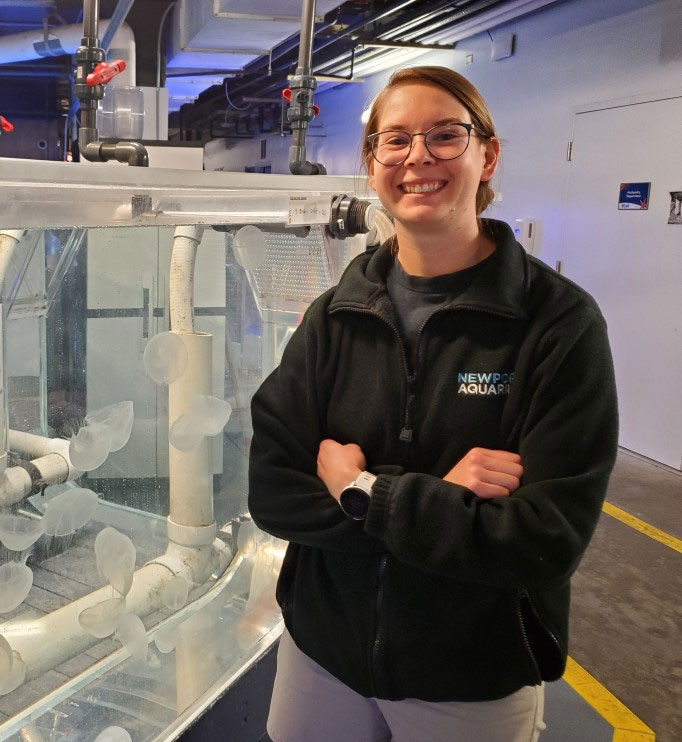
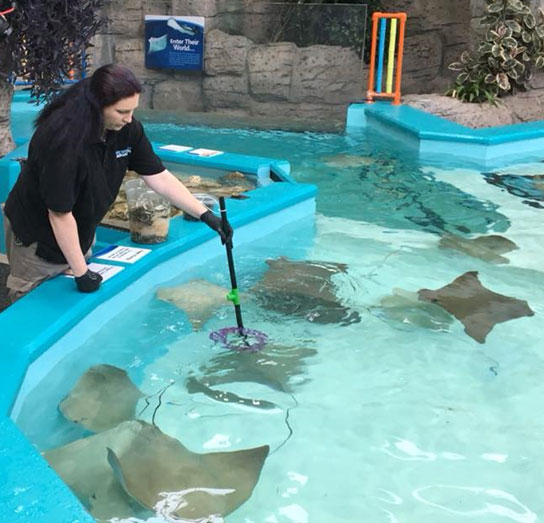
Sometimes, the world doesn’t have to throw out a curve ball, the animals do, and the Biologists have to adapt and improvise. Biologist Erica says the Jellyfish love to keep her on her toes. “Jelly keeping is always being persistent because if you relax, animal health can start to decline almost immediately. I have to be able to find new solutions to their problems that work for them, even if it is harder for me. It’s all about keeping them happy!” The Stingrays in Stingray Hideaway love to throw Biologist Michelle new challenges, but she knows what to do. “I take some time to assess any new situation they give me and make the changes that the stingrays need. And, I’m happy to have a wide network of stingray keepers at many different aquariums that I can get any additional help from if I need it!” Biologist Erin works with our alligators and says the ones that challenge her the most are the Bayou Babies. “Baby gators are crafty. They’re curious and love to explore and test their limits. Sometimes, they outsmart me, especially if it’s to get an extra snack!”.
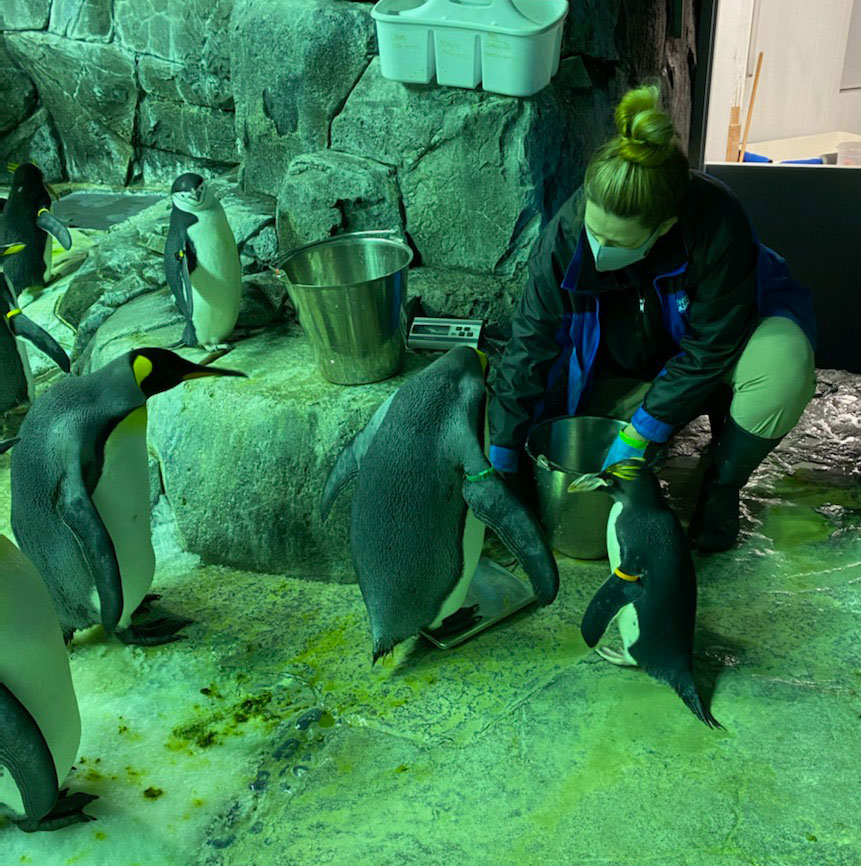
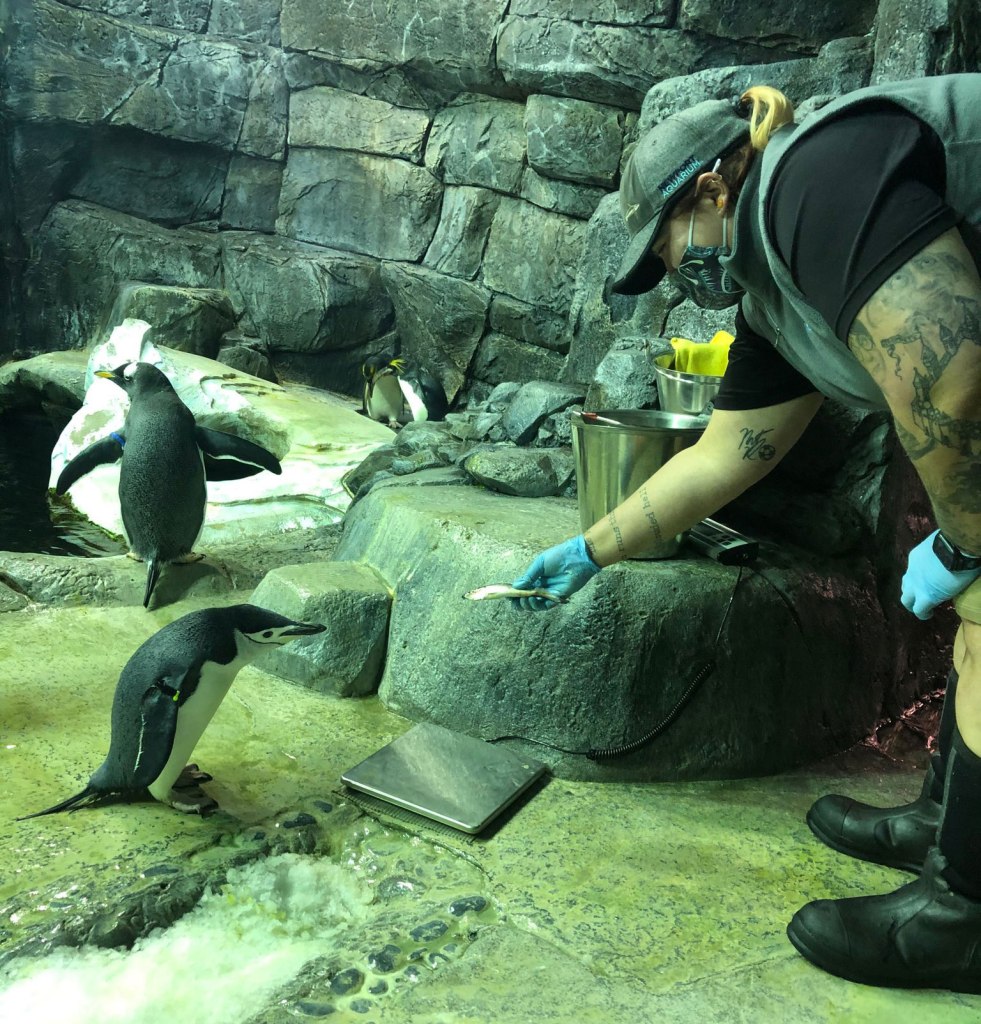
Learning a new skill can take some time, and when you try to train an animal, it can be tricky. Fortunately, our Animal Care Team is patient and persistent when training a new skill. Like our Penguin Biologists, Tamara and Geneve, who are working with the cold weather birds to stand on a scale on their own. Picking up a bird can be stressful, but if they walk onto the scale themselves, it not only helps our team watch the health of our animals, it makes the experience good for the animals. It can be a slow process, especially getting that last toe on the scale correctly, but there is true celebration when it happens! To date, all but one of the cold weather penguins will voluntarily get on the scale!
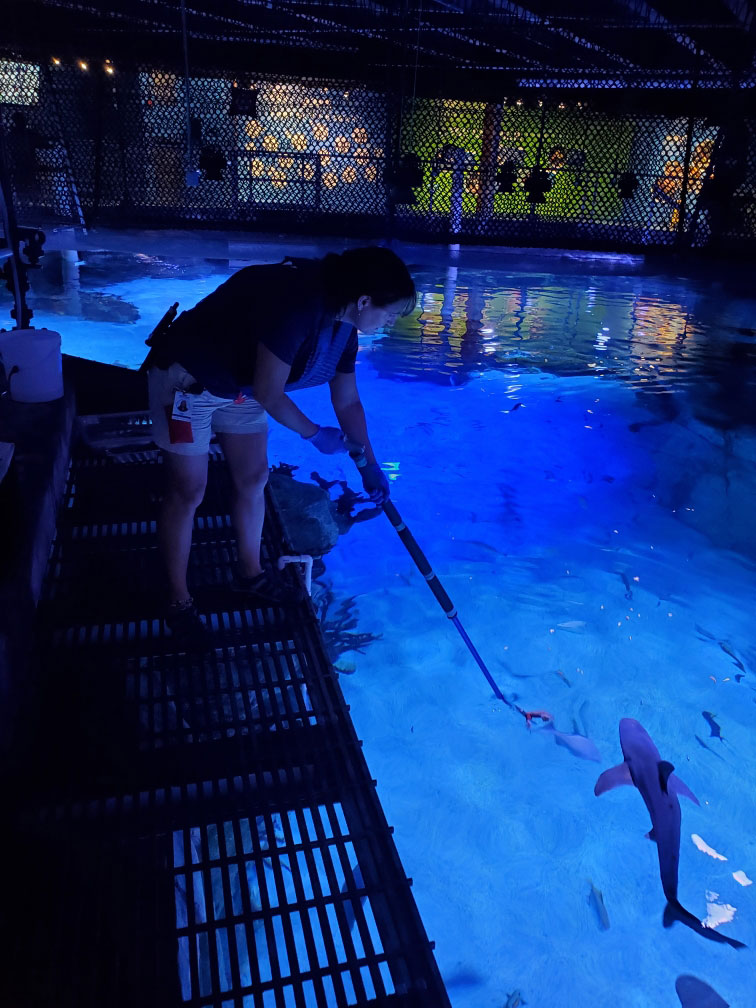
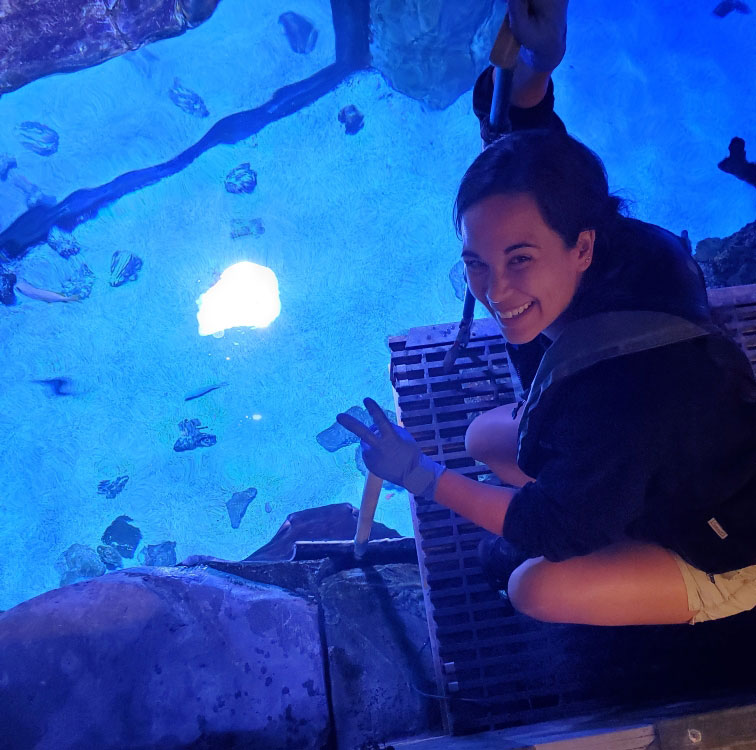
What do you do when you have to feed a bunch of top aquatic predators and need to make sure that they each get their fair share? You can ask our Shark Tank Biologists, Jen and Kristen! Whether it is figuring out a way to get a sleepy nurse shark to come up for her lunch or how to help the new Sandbar Sharks see where to go, Jen and Kristen use their knowledge and skills to help our big fish get what they need. Like when we wanted to show the Shark Rays how to hunt for shellfish on the bottom of the sea floor, Biologist Jen figured out a way to get the food down to them and kept working at it until the Shark Rays understood what to do. Or, when we needed to make sure that our large stingrays got only their food (and not their tank mate’s food), Biologist Kristen worked with them on target training.
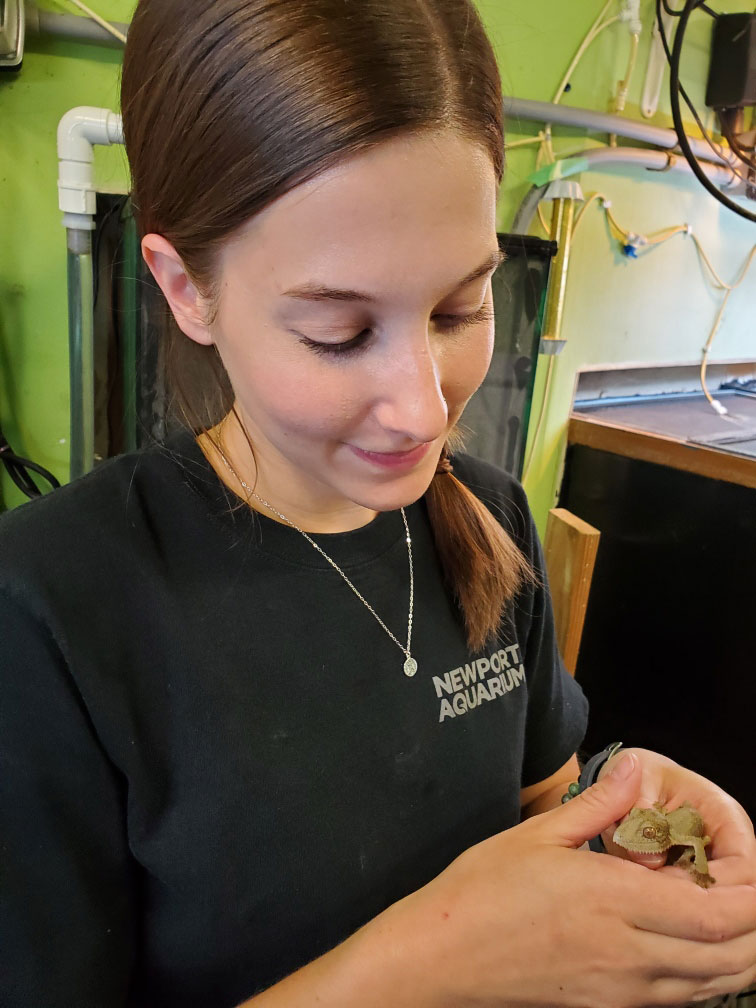
Our Biologists have the opportunity to work with some incredible animals, and a few are on the Endangered Species list. When those animals lay eggs or have young, it is an exciting time and gives new hope for the species. But sometimes, it takes a little patience and improvisation to find just the right situation for these animals to want to breed. Reptile Biologist, Kelly, has cracked the code for a few of these species this year. Under her care, a few animals classified as vulnerable have not only laid eggs, but have hatched! Animals like our new favorite baby turtle, Pumpkin, a diamondback terrapin now on exhibit in Gator Alley!
If you happen to see one of our Biologists this week, please give them a word of thanks for all of the hard work they’ve done for Newport Aquarium and the animals this year. And as our last word, here’s what Curator Kelly had to say: “This last year has required improvisation, adaptability, and persistence, and I’m so happy work with a team of Biologists who are dedicated and exhibit these traits no matter what is thrown at them!” #NZKW2021 #ItTakesAZoo #KeepCalmZooKeepOn

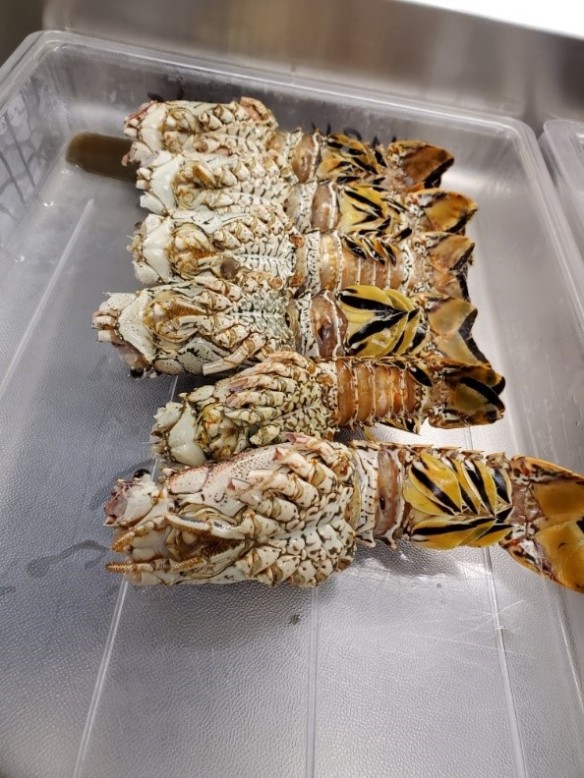
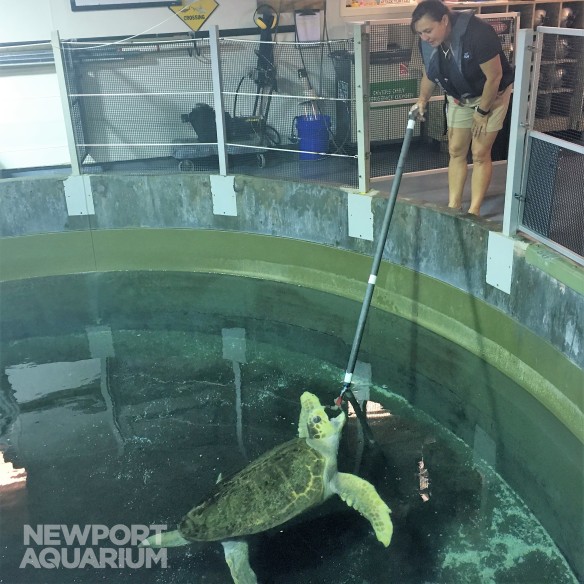
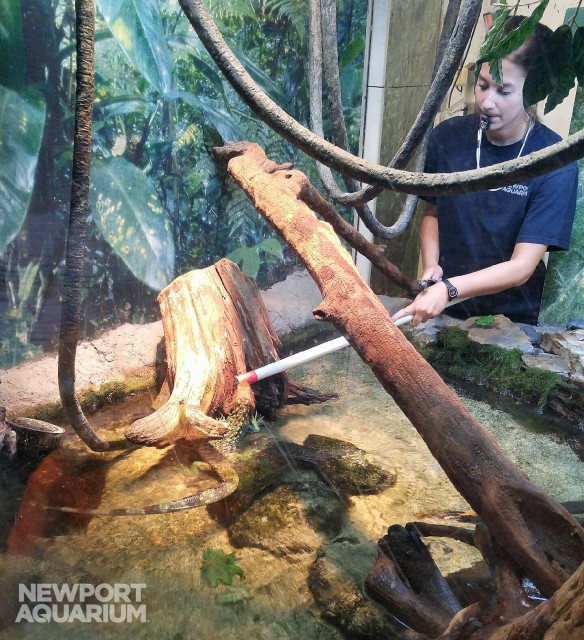
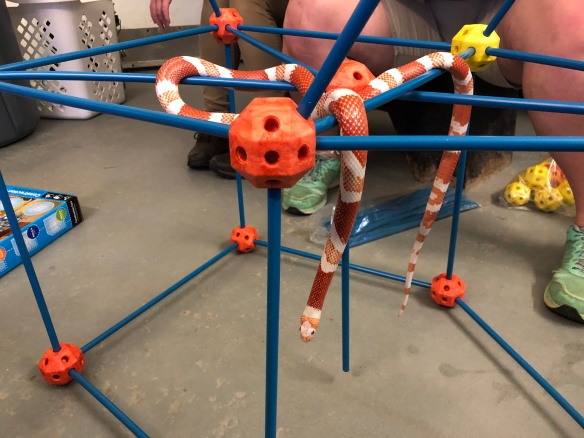
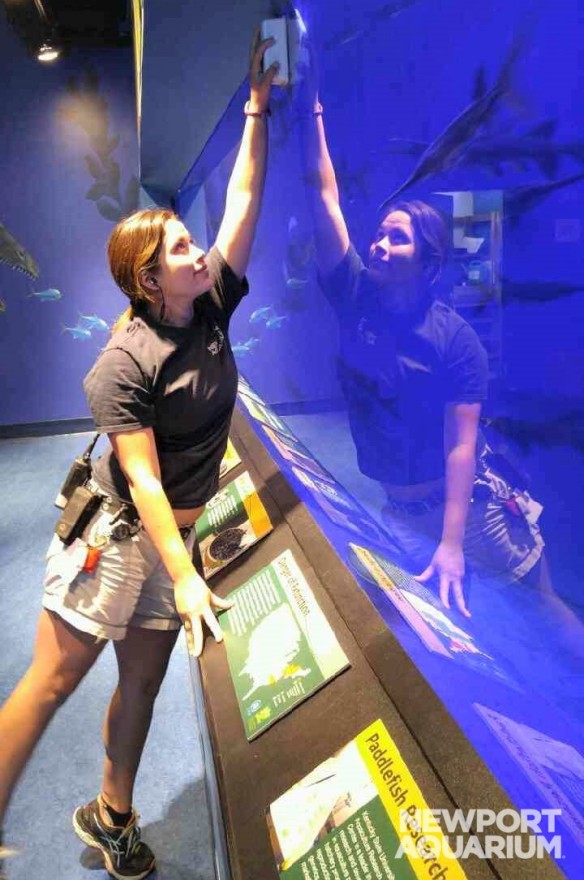

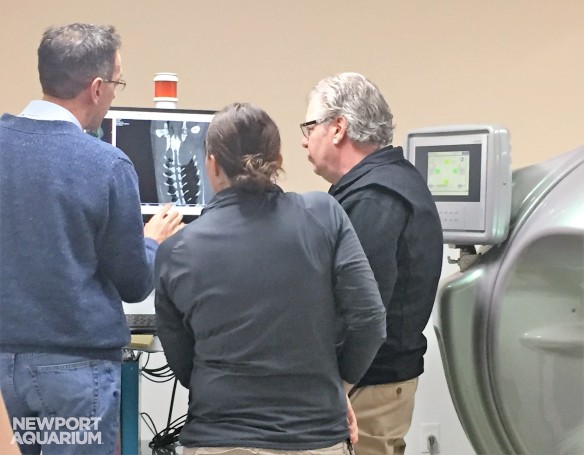
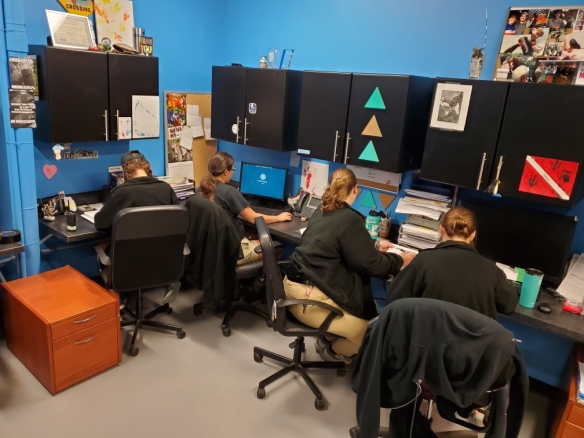

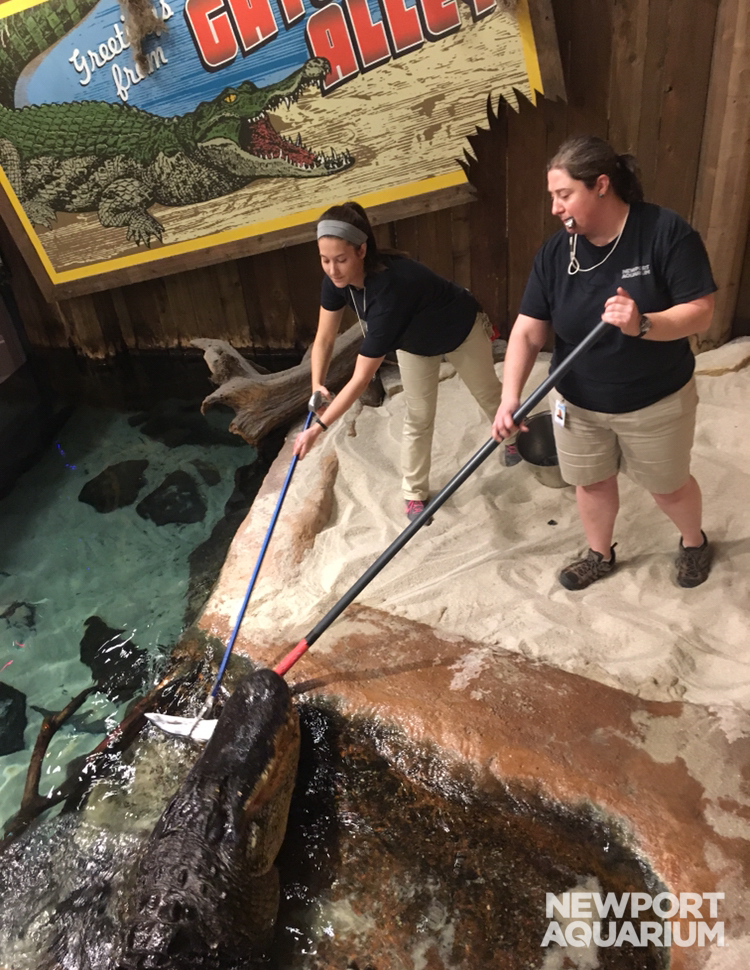
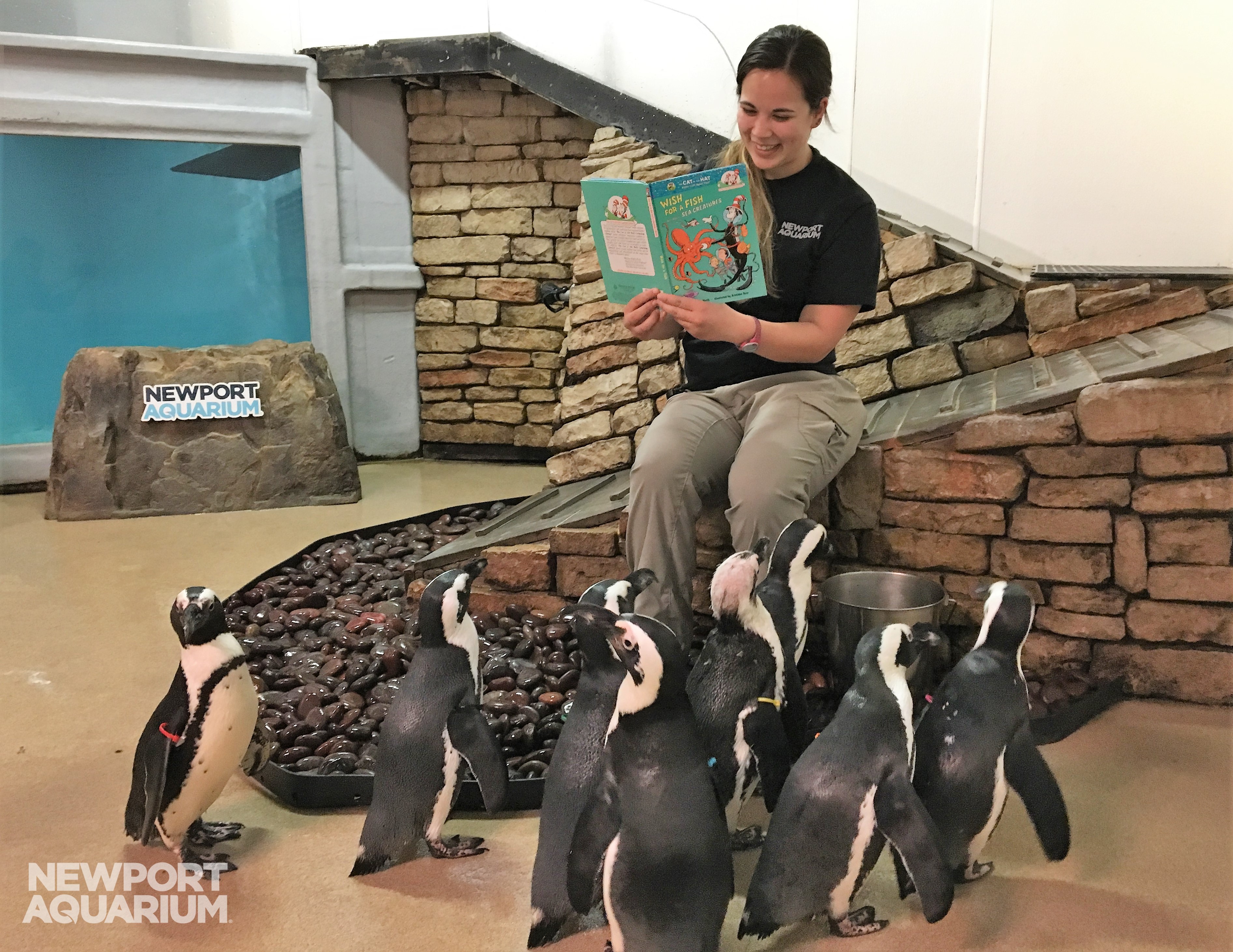


 Erin works with our reptile and amphibian collection. We featured Erin in
Erin works with our reptile and amphibian collection. We featured Erin in 
 Rob takes care of our live coral tanks. He also helps out in our Seahorse Gallery with the Ribbon Dragons and Dwarf Seahorses. “I love corals because they are colorful, challenging, and confusing to many people. They are a reminder to everyone that the health of our oceans is very important.”
Rob takes care of our live coral tanks. He also helps out in our Seahorse Gallery with the Ribbon Dragons and Dwarf Seahorses. “I love corals because they are colorful, challenging, and confusing to many people. They are a reminder to everyone that the health of our oceans is very important.”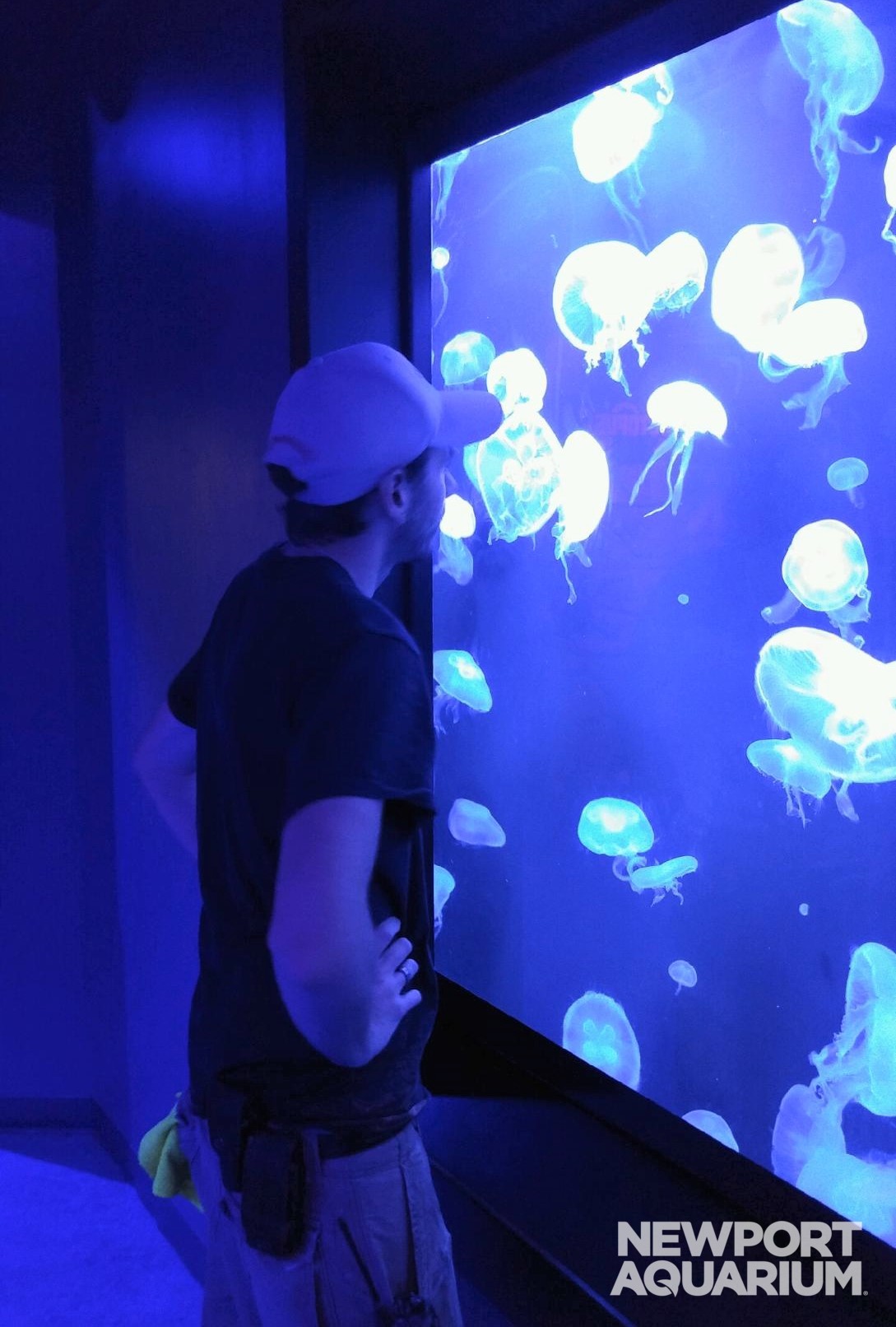




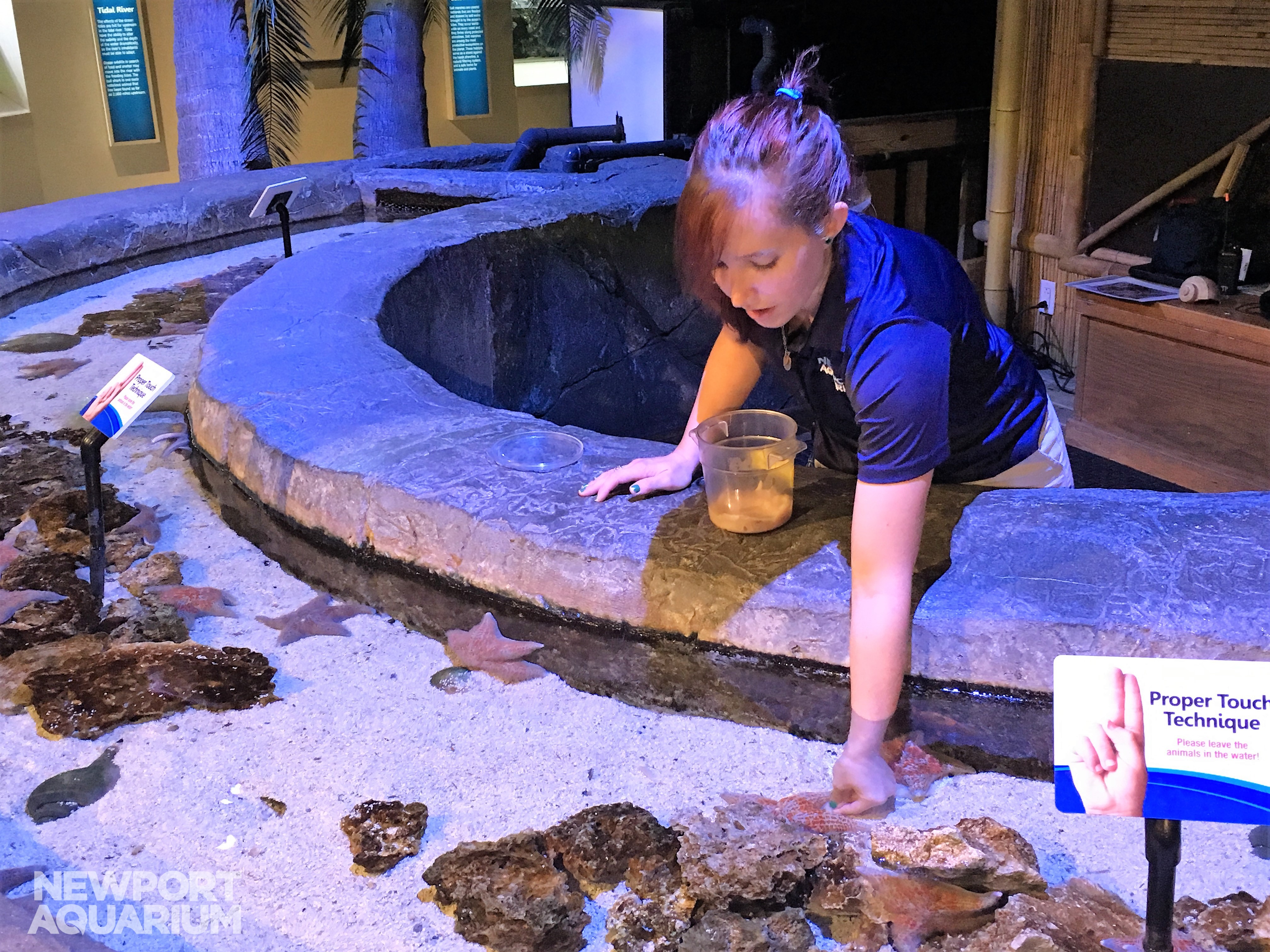 Margaret is an aquarist who works with a variety of saltwater fish. She was featured in a special
Margaret is an aquarist who works with a variety of saltwater fish. She was featured in a special  Laurel works closely with our quarantine animals and those that live at our offsite animal health facility. She and the vet team are the first people that our animals encounter before they make their way to the exhibits here at Newport Aquarium. “The best part of this job is bringing animals to people who may never get to see them otherwise. It makes an impact on these people and helps them become more aware of the world and conservation needs.”
Laurel works closely with our quarantine animals and those that live at our offsite animal health facility. She and the vet team are the first people that our animals encounter before they make their way to the exhibits here at Newport Aquarium. “The best part of this job is bringing animals to people who may never get to see them otherwise. It makes an impact on these people and helps them become more aware of the world and conservation needs.”


